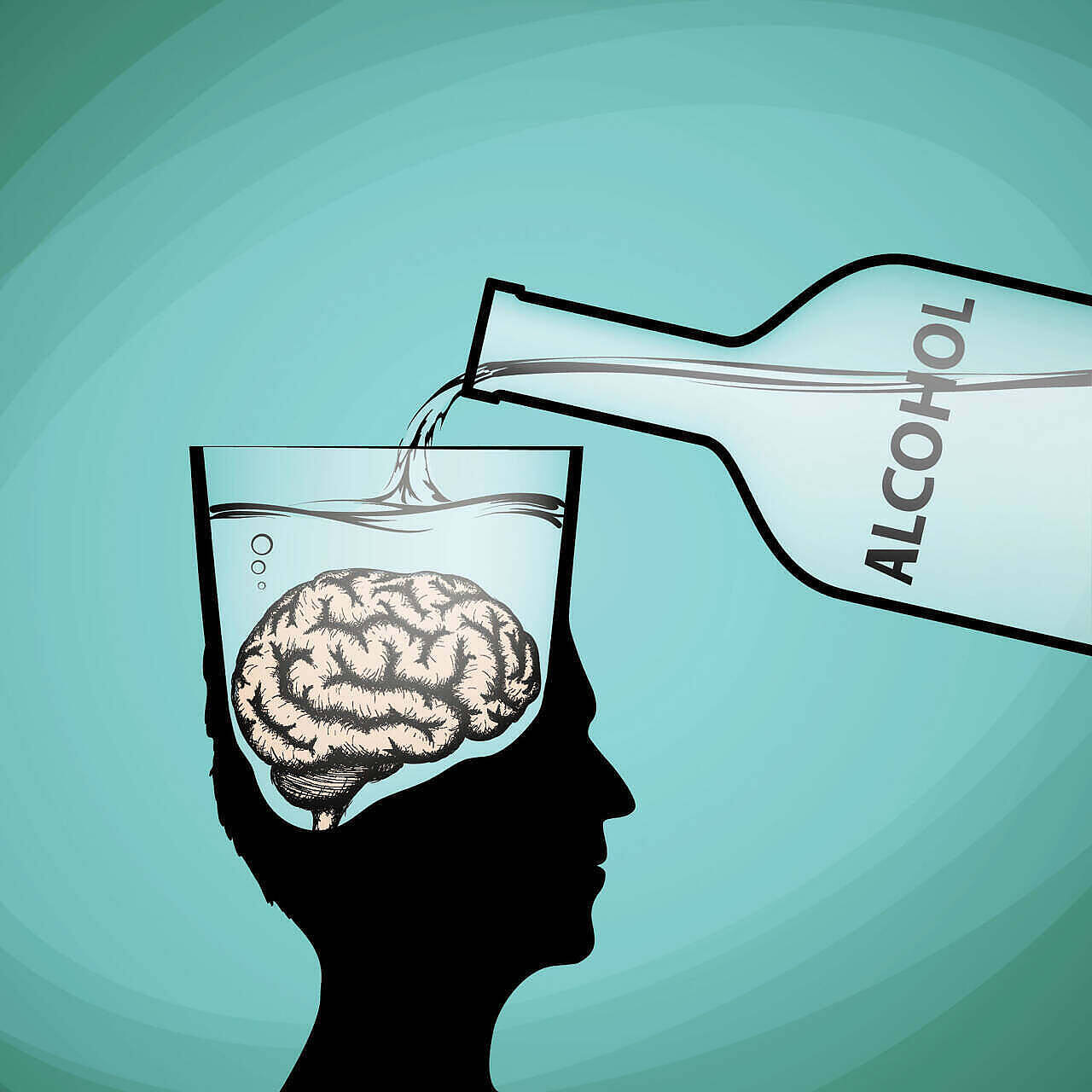
How to Help an Alcoholic – A Step By Step Guide
If someone you know suffers from alcoholism, you likely want to help them. Perhaps you don’t know where or how to start.
Getting a loved one to seek help for an alcohol problem is no easy task. This is especially true if they are in denial of their problem. In other instances, they may not be ready to give up alcohol.

The Department of Health estimates that 280,000 Londoners are dependent on alcohol, and an estimated 602,391 people in England alone are dependent on alcohol, yet only 18% of them are receiving treatment.
These statistics are vital as we feel more people would seek help if they understood how severe alcoholism is.
In this article, we hope to help you understand what alcoholism is and when and how to broach the subject with a loved one. Further, we give a step-by-step guide on how to help an alcoholic. We also provide information on when to involve professional help and when to stage an alcoholic intervention.
Understanding Alcoholism
Before you speak to your loved one about an alcohol problem, it is beneficial to understand what they are experiencing. In other words, put yourself in their shoes so you can speak to them with understanding and compassion.
Someone with alcoholism may well not even understand why they drink so destructively. They may not know they are suffering from a deadly yet treatable illness.
This is where learning the facts about alcoholism can be powerful. You can help them to understand the nature of their condition. You can further reassure them that they can be successfully treated. This may be sufficient in prompting them to seek the right help.
Alcohol use disorder (AU) is the medical terminology for somebody that abuses or has become addicted to alcohol. The condition can be mild, moderate or severe.
However, anyone that shows an inability to control their drinking and suffers adverse consequences as a result is likely to suffer from an alcohol use disorder. AUDs are progressive. Without treatment, they only get progressively worse.
Perhaps you know a family member or loved one currently binging on alcohol at the weekends. This is quite common. However, when it is to the detriment of their health, occupation and personal relationships, this is when alarm bells should start ringing.
You can never intervene too early when helping an alcoholic; you can only intervene too late.
Providing you have a solid knowledge of what you are dealing with, you can learn how to deal with it whilst keeping yourself safe and sane.
Help an alcoholic to understand they have a treatable brain disease
Alcohol use disorders are recognised medical conditions and are considered brain diseases.
We appreciate this information may come as a shock. Indeed most alcoholics don’t even realise this is the case, let alone their families.
Repeated abuse of alcohol causes long-lasting changes in the brain. These changes remain even once the alcohol is stopped.
The changes in alcoholic brain undergoes are substantial and cannot be cured or reversed by any medical or scientific means. They will always be at risk of relapse. Hence why, alcoholism is medically recognised as a brain disease.

Thankfully, no matter how hopeless an alcoholic may appear, with the correct help they can be successfully treated and rehabilitated
Evidence-based treatments combined with medications, behavioural therapies and support groups can help an individual suffering from alcoholism to attain and maintain recovery.
This is also our experience as a company that specialises in drug and alcohol addiction treatment. We witness the miracle of recovery daily within our CQC registered treatment centres.
Spotting an alcoholic
Now that you know a little bit more about the medical side of alcohol addiction. It is helpful to spot the signs of an alcoholic in the person you are trying to help.
Not everyone who drinks heavily or frequently has an alcohol addiction. Although they do have the potential to develop this disorder, they can still choose to moderate or stop their own alcohol intake.
Signs of being an alcoholic:
- An inability to control or moderate the amount of alcohol consumed
- Swearing many times that they will stop, but being unable to stop or stay stopped
- Suffering negative consequences as a direct result of drinking alcohol. These consequences may include physical injury, financial difficulties, problematic relationships, trouble with the law, reduced productivity, mental health problems, difficulties at work or in education.
- Despite suffering negative consequences as a result of drinking, they continue to drink and the consequences build-up
- Attempting to hide the amount they drink. You may find hidden alcohol or empties. You may smell alcohol on them but they deny they have consumed any.
- Denial of a problem with alcohol. Denial is not always a result of not wanting to face facts. Research shows that the damage caused to the brain in alcoholics can be responsible for their denial.
- Suffering from alcohol-induced mental health disorders such as anxiety, depression, paranoia, Wernicke’s Korsakoff’s syndrome or a personality disorder.
- Frequently making excuses to drink alcohol.
- Only going places that involve drinking or where alcohol will be served
The above list is by no means all of the signs of alcoholism. The signs can vary depending on the severity of the disease.
However, anyone suffering from an alcohol use disorder will show a distinct lack of control when it comes to alcohol. This may be in the amount they drink, where they drink or when they drink. They will not be able to leave alcohol alone completely, regardless of the necessity, risk or wish.
How to help a functioning alcoholic
Not all alcoholics lose everything as a result of their drinking, although this will be likely to happen the more their disease progresses. Many alcoholics are able to function and hold down a job. These people are referred to as functioning alcoholics.
It is important to understand that alcoholism can take on many different forms. Varying from the occasional full-blown binge to daily continuous drinking. However, regardless of their drinking patterns consequences will follow. These consequences may be to their health, occupation, social life, personal relationships or finances.
If you live with a functioning alcoholic you will have more of a challenge in convincing them that they have a problem. They are likely to argue that they cannot be an alcoholic as they still hold down a job and provide for their family, but at what cost?
Partners of functioning alcoholics often feel manipulated and emotionally neglected. They may feel that their loved one has been lost to alcohol and no longer exists. If this is the case with you, then when speaking to them it is important to convey how their drinking affects you and makes you feel
Ensure you are not enabling an alcoholic to drink

Before speaking with an alcoholic about their problem, preparation is everything. They may come up with all kinds of excuses, obstacles or they may even blame you.
Living with an alcoholic affects a person so badly that they often unwittingly take on some of the alcoholic’s traits (whether they drink or not).
Codependency is common in relationships where one or more persons are affected by alcoholism.
If you are avoiding speaking to a partner or family member about their alcoholism through fear of their reaction, you may not be best person suited to help them.
It is vital that you feel safe. In instances such as this, it is best to get somebody else to talk to them about their problem, or at least have others there to support you.
What is enabling an alcoholic?
When you are enabling your loved one with an addiction, it usually comes from a place of wanting to protect them. On a deeper level you may fear that if they no longer need you, they may leave.
Enabling allows an alcoholic to continue drinking in the way they desire. It also prevents them from facing the consequences that may eventually lead them to ask for life-saving help.
Signs of enabling include:
- Giving money to cover food, bills, housing or buy alcohol, because they are spending all of their own income on alcohol
- Financially supporting an alcoholic who is unable to support themselves due to their drinking
- Trying to control their drinking for them. Pouring drink away, controlling access to money etc
- Covering up for them or making excuses for their behaviour
- Nursing them through their hangovers, anxiety or depressive moods
- Witnessing them break the law and not reporting it. A good example of this would be you know they are driving a vehicle whilst intoxicated
- Allowing them to manipulate you for their own gain (usually you will have a feeling you are being manipulated)
If you recognise that you are enabling an alcoholic, please do not be hard on yourself. Living with an alcoholic would take its toll on anyone, especially when you deeply care for their well being.
Some people are able to stop enabling once they understand it is causing more harm than good. Others require counselling and support. Only you can decide whether or not you need help. A good source of free support for anyone affected by another person’s drinking is Al-Anon.
Before you speak to an alcoholic about getting help, you need to ensure that you are well in yourself and strong enough. This may mean getting another person to speak to them for you, staging an intervention, or seeking help and support for yourself first.
Setting the scene and getting ready to talk

Timing can be everything when it comes to getting an alcoholic to admit they need help. If you can avoid it, don’t talk to them when they are very intoxicated. They are likely to react irrationally and may not even recall your conversation.
Choose a time when they are not busy and are as sober as they can be. Sometimes off the back of a binge or after a big consequence can be a good time. They are more likely to see reason if they are feeling vulnerable as a result of their drinking.
Pick a day when you are feeling strong in yourself. You may well need to draw on that strength if you are met with resistance.
You may want to write down what you want to say to them so that you do not forget or go off-topic.
How to speak to an alcoholic about their drinking – Our step by step guide:
- Pick a time and place when you will not be disturbed and will not be rushed
- Take a calm and pragmatic approach to the conversation
- Start the conversation by telling them how much you care for them and it is because of this that you want to have this conversation.
- Ask them to listen if they can, without interrupting you
- Tell the alcoholic what you know of alcoholism, tell them the facts.
- Give them clear examples of behaviours and times where their drinking has worried or caused you, them or others harm
- Tell them how their alcoholism affects you and other family members. Tell them how you feel
- Place an emphasis on alcoholism being treatable and that they can get better if they want to. Ask them if they think alcohol might be a problem for them
- Tell them you will support them in getting better but that you cannot support their addiction. This will only harm them and you.
- Empathise with any fears that they express, but tell them this should not hold them back from getting well. Be ready for any excuses or obstacles they may present to avoid getting help.
If they become angry, try to remain calm. If this does not diffuse their anger or defensiveness, then walk away. Try another time when they have calmed down. At the very least you will have raised the question.
Sometimes, despite everything you try, you cannot get an alcoholic to admit that they need help. If this is the case you should focus on yourself and attend Al-Anon meetings for help, advice and support. Remember that their condition is not your fault.
If they admit that they have a problem and want to get help, this is where acting quickly is important.
Windows of opportunity can be few and far between. You may want to pick up the phone immediately to one of our trained addiction treatment counsellors. We will be happy to talk to both of you, discuss your treatment options and offer reassurance.
Staging an intervention to help an alcoholic
If you find your conversation brings no solid results, or if you would rather not talk to an alcoholic on your own, you may want to consider staging an intervention.
You have the option of conducting your own intervention or paying for professional intervention.
An intervention can be a gold card when it comes to breaking through alcoholic denial, or when all seems lost.
If your loved ones affected by alcoholism is in a bad way and you fear for their life, then an intervention is certainly something to consider. It may well save their life.
Professional alcohol interventions are usually very successful and are staged by an extensively trained professional. They will organise everything for you.
If you wish to speak with an interventionist, please call us and we will put you in touch with a reputable professional that can get the result you need.
Rehab v mutual aid groups
Inpatient rehab provides a very specialist setting and extremely high levels of care. Some people require medication and professional support to help them safely stop alcohol.
You should never tell an alcoholic to stop drinking if you suspect they are dependent. Abrupt cessation of alcohol where a physical addiction is present can result in some very serious and even life-threatening withdrawal symptoms.
Alcohol withdrawal symptoms can last for weeks if not medically treated. Severe alcohol withdrawal symptoms such as below can be prevented with full medical alcohol detox.
Whether they should admit to rehab or attend mutual aid groups, such as Alcoholics Anonymous or SMART Recovery really depends on the severity of their condition.
It also depends on what treatments they have tried before and whether they need medical help to stop drinking. This really needs to be professionally assessed on a case by case basis.
Alcohol rehab is a privately funded option. Some of our rehabs also accept health insurance. Residential alcohol treatment offers many benefits over trying to get sober in the community. In rehab, any temptation is removed. Professional evidence-based treatments are delivered intensively, with around the clock support. To help an alcoholic get sober, sometimes rehab is the only way.
If they are not physically addicted and very motivated to get well, they may find recovery through attending mutual aid support groups. Many people do manage to stop drinking in this way, but some need professional treatment.
If you are unsure of which route to take to help an alcoholic, you can always call us for free and confidential advice and support.

How to help an alcoholic whilst in treatment and after rehab
Often, we are asked by loved ones and family members what they can do to support a person who is undergoing rehab treatment. We are also frequently asked what the best methods of supporting a newly detoxed person are.
Whilst someone is in treatment, they are safe and surrounded by a team of multidisciplinary professionals. However, a family emergency could still have the potential to pull a patient out of treatment. Of course, there are some events that should never be withheld.
Our advice is to always speak to the rehab they are in and ask their counsellors for advice. They will know what they are capable of handling. They can also put extra support in place where necessary
Supporting a person recently out of rehab can be a scary prospect. You may feel anxious that you will do or say the wrong thing. This is perfectly natural.
Firstly, please understand that only they can take responsibility for their recovery. Just as you are the only person who can take care of your own well-being.
There are a few simple things you can do to help an alcoholic in the early months of recovery:
- Keep their home a safe place and an alcohol-free zone
- Don’t place expectations on them or demands
- Encourage them to attend aftercare (post-rehab) and mutual aid support-groups
- Attend support groups such as Al-Anon of counselling so that you can heal too
Detox is only the first step
When helping an alcoholic, it is vital that you and they understand that stopping the alcohol is only the first step in recovery.
Following on from alcohol detoxification, in order to make a full and lasting recovery, a comprehensive rehabilitation programme is recommended. They will also require a lot of support to help them keep on track.
Effective treatment for alcohol use disorders include:
- Medications
- Treatment for any co-occurring mental health disorders (dual diagnosis)
- Remaining in treatment for an adequate period of time. (Research shows that most people with an addictive disorder benefit from at least 3 months in treatment)
- Behavioural therapies. This should include family or group counselling. It is important that the whole family unit is treated as a whole
- Ongoing support and regular review of care plans
- Treating the whole individual, not just the alcohol problem. This means support and treatment for social, housing, financial, emotional, physical and occupational needs (7)
There are many more elements to effectively treating alcoholism, which is a very complex disorder to treat. This is why a specialist facility such as a drug and alcohol rehab can be so helpful in establishing initial recovery and in maintaining long term sobriety.
If you need help for an alcoholic
Trying to help an alcoholic can be very daunting, frightening and confusing. There are so many things to consider when it comes to accessing effective alcohol treatment.
This is where we can be of great assistance in ensuring that you get the correct help. The help that will make a real difference to the alcoholic’s life, and indeed to your life.
By calling us we can expertly advise you of the best treatment options that will help your loved one to get better. We can also answer any questions you may have regarding the treatment process and support you throughout the process.
Call us today for further information on alcohol treatment options. We can also conduct a free and confidential expert assessment. Help is available, this is not something you have to cope with on your own.

